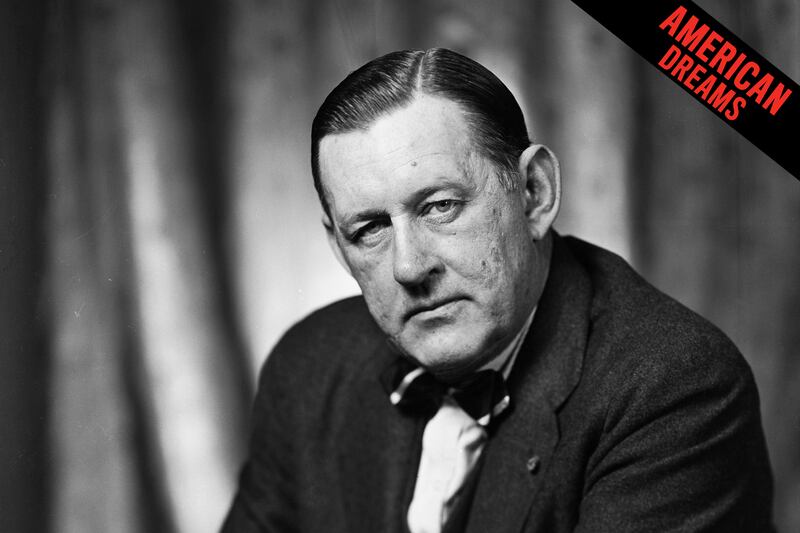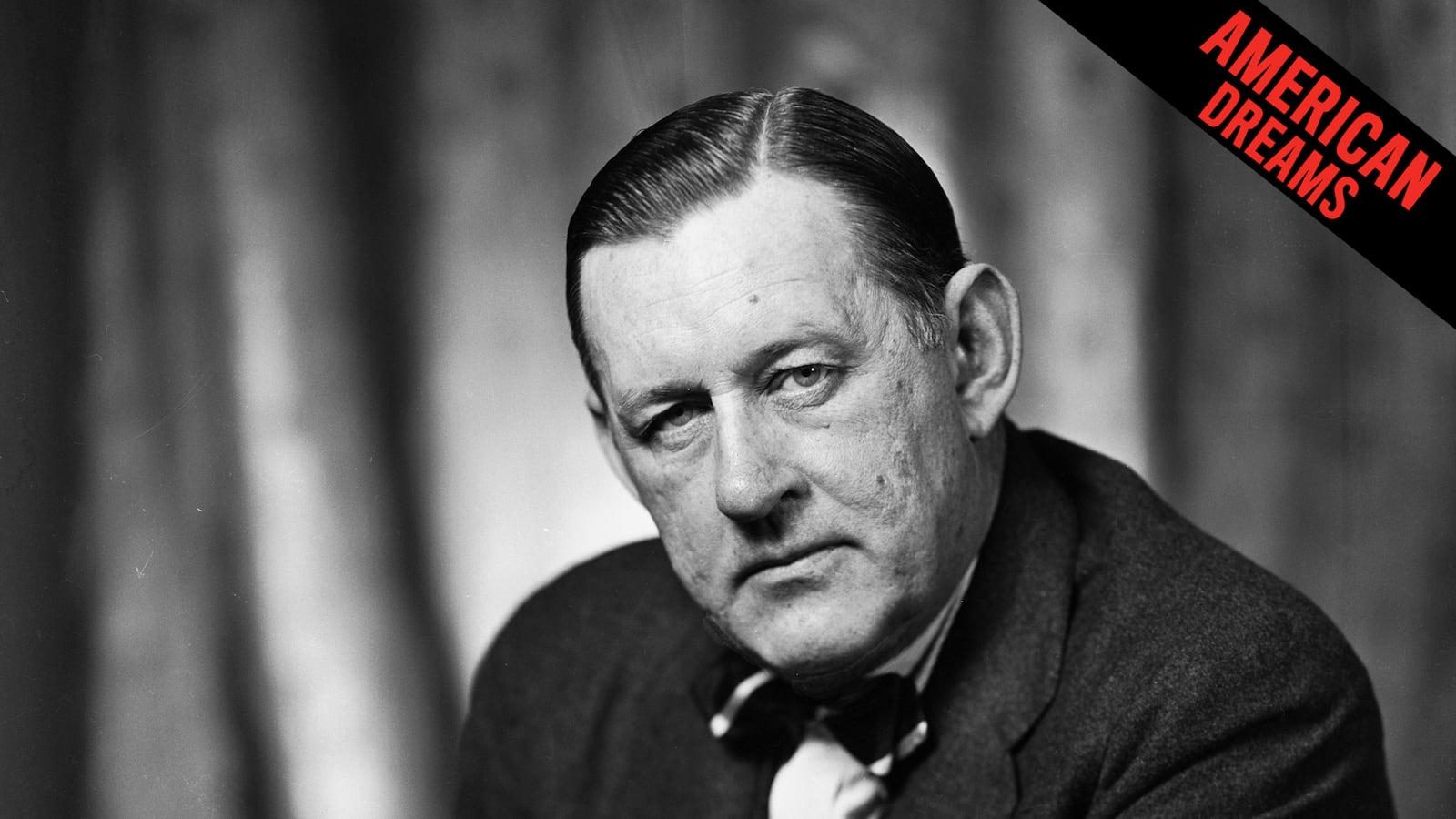This is the latest in a series in which Nathaniel Rich examines a notable 20th-century American novel in the context of the year in which the book was published.

At exactly what point in the Great Depression did Americans start feeling depressed? It wasn’t Black Thursday, October 24, 1929, when the New York Stock Exchange fell 11 percent, beginning the great Panic. Nor was it Black Monday, when the market fell an additional 13 percent, Black Tuesday (another 12 percent), or even November 13, when the market reached its nadir. Through the winter and even well into the next spring, newspapers ran reassuring headlines like “Wall Street may sell stocks, but Main Street is still buying goods.” “We have now passed the worst,” declared President Hoover, “and with continued unity of effort we shall rapidly recover.” As Frederick Lewis Allen writes in his excellent history of the decade, Since Yesterday, the Depression remained until 1932 an abstract idea to most Americans, something they read about in the newspaper but had little bearing on their lives. Few suspected it would linger. In a 1930 poll, when American business leaders were asked to name “the paramount problems of the United States,” “unemployment” came in 18th place. The most popular song of the year was “Happy Days Are Here Again!”
John O’Hara’s bitter, transfixing first novel is a portrait of this brief period when dread and denial engaged in a dismal pas de deux. Appointment in Samarra is an unlikely hybrid, a Jazz-Age novel set amidst the early throes of the Depression. The story takes place during the Christmas weekend of 1930, when the rollicking spirit of the ’20s still lingered—at least in places far from the financial centers, like Gibbsville, O’Hara’s fictional Pennsylvanian city, 94.5 miles west of Philadelphia. But O’Hara wrote the novel three years later, after nine thousand banks had gone bankrupt, unemployment in some Midwest cities reached 80 percent, and a third of all American farmers lost their land. The aura of doom begins with the novel’s title, a portentous reference to a fable about a man’s inability to escape his appointment with death, and is refreshed by frequent references to anxieties about the financial “slump” and Hoover’s pathetic efforts to instill confidence (“Next year, according to Hoover, things would be much better all around…”). Yet the dread has an oddly nourishing quality; this dread invigorates. It gives the novel its life. The experience of reading Appointment in Samarra is like staying too late at a charmless party, pouring another drink only to defer the hangover that you know is coming. But the drink does the job and soon you find that you’re pouring another.
Early in the novel O’Hara brings us to one of those parties, a sloppy, rollicking, smoky affair at the Gibbsville country club, where contraband rye flows freely and men are overheard telling their wives things like, “I’ll drink as much as I God damn please.” It is a little past three o’clock in the morning but this party, like the Roaring Twenties, seems to have “been going on forever, and hardly anyone wondered when it would end.” Attending is Julian English, the rakish young president of the local Cadillac dealership, and his boss, fat, long-winded Harry Reilly, who everyone in Gibbsville humors because he is the richest man in town. Julian, for no reason he can name, fantasizes about throwing his drink into Reilly’s face. He laughs about it to himself, but doesn’t really consider doing it. It would be too crazy—suicidal really, especially since, besides owing his job to Reilly, he also owes Reilly $20,000 dollars. No, he decides, he absolutely cannot throw his drink in Reilly’s face. Then he throws the drink in Reilly’s face.
O’Hara flits among the lives of more than a dozen inhabitants of Gibbsville, but it is Julian’s kamikaze act that gives the novel its tragic structure. Julian’s downfall unfolds in a series of increasingly impulsive actions that seem to exhilarate him to the same degree that they ruin his life. He knows the difference between right and wrong, but he can’t stop himself from doing wrong. A night after he humiliates Reilly, he seduces, in full view of his wife and their friends, the mistress of the local mafia boss, disappearing with her into a parked car outside a second party. To complete his public disgrace, he gets into a fistfight with a friend, a one-armed war veteran no less, the next afternoon at the country club. He also behaves cruelly to his wife, tries to seduce a female journalist when she comes to his house to report a story, and alienates his concerned parents. Julian is not a sociopath or a miscreant—far from it, he feels a punishing sense of remorse for his actions—but the worse he behaves, the less he desires redemption. “Is there anything I haven’t done?” he wonders, his regret modulated by a dark excitement. “Anyone I haven’t insulted, at least indirectly?” He accepts his fate, even welcomes it: “Julian felt the tremendous excitement, the great thrilling lump in his chest and abdomen that comes before the administering of an unknown, well-deserved punishment. He knew he was in for it.” And perhaps more Americans than would admit it knew, deep down, that they were in for it, too.
Appointment in Samarra is a striking antidote to contemporary novels like Nathanael West’s Miss Lonelyhearts and Erskine Caldwell’s Tobacco Road, which remain startling for their implacably cynical view of humanity. O’Hara offers a more nuanced, and more subversive view of the national mood at the cusp of the Depression. In O’Hara’s novel, catastrophe, both public and personal, has a cleansing effect. It overwhelms the old constraints and demolishes social convention. It allows you to throw drinks at your boss and punch your best friend in the face. Catastrophe is frightening, sure, but more than anything else, it’s liberating. The tragedy, you realize at the end of the novel, is not Julian’s death, which, as the title reminds us, is inevitable. The tragedy is the fact that none of the other residents of Gibbsville are ever able to bring themselves to live freely, not even for a single Christmas weekend.
Other notable novels published in 1934:
The Postman Always Rings Twice by James M. CainTender is the Night by F. Scott FitzgeraldThe Thin Man by Dashiell HammettTropic of Cancer by Henry MillerCall It Sleep by Henry RothA Cool Million by Nathanael West
Pulitzer Prize:
Lamb in His Bosom by Caroline Miller
Bestselling novel of the year:
Anthony Adverse by Hervey Allen
About this series:
This monthly series will chronicle the history of the American century as seen through the eyes of its novelists. The goal is to create a literary anatomy of the last century—or, to be precise, from 1900 to 2013. In each column I’ll write about a single novel and the year it was published. The novel may not be the bestselling book of the year, the most praised, or the most highly awarded—though awards do have a way of fixing an age’s conventional wisdom in aspic. The idea is to choose a novel that, looking back from a safe distance, seems most accurately, and eloquently, to speak for the time in which it was written. Other than that there are few rules. I won’t pick any stinkers.
Previous Selections
1902—Brewster’s Millions by George Barr McCutcheon1912—The Autobiography of an Ex-Coloured Man by James Weldon Johnson1922—Babbitt by Sinclair Lewis1932—Tobacco Road by Erskine Caldwell1942—A Time to Be Born by Dawn Powell1952—Invisible Man by Ralph Ellison1962—One Flew Over the Cuckoo’s Nest by Ken Kesey1972—The Stepford Wives by Ira Levin1982—The Mosquito Coast by Paul Theroux1992—Clockers by Richard Price2002—Middlesex by Jeffrey Eugenides2012—Billy Lynn’s Long Halftime Walk by Ben Fountain1903—The Call of the Wild by Jack London1913—O Pioneers! By Willa Cather1923—Black Oxen by Gertrude Atherton1933—Miss Lonelyhearts by Nathanael West1943—Two Serious Ladies by Jane Bowles1953—Junky by William S. Burroughs1963—The Group by Mary McCarthy1973—The Princess Bride by William Goldman1983—Meditations in Green by Stephen Wright1993—The Road to Wellville by T.C. Boyle2003—The Known World by Edward P. Jones1904—The Golden Bowl by Henry James 1924—So Big by Edna Ferber1914—Penrod by Booth Tarkington






